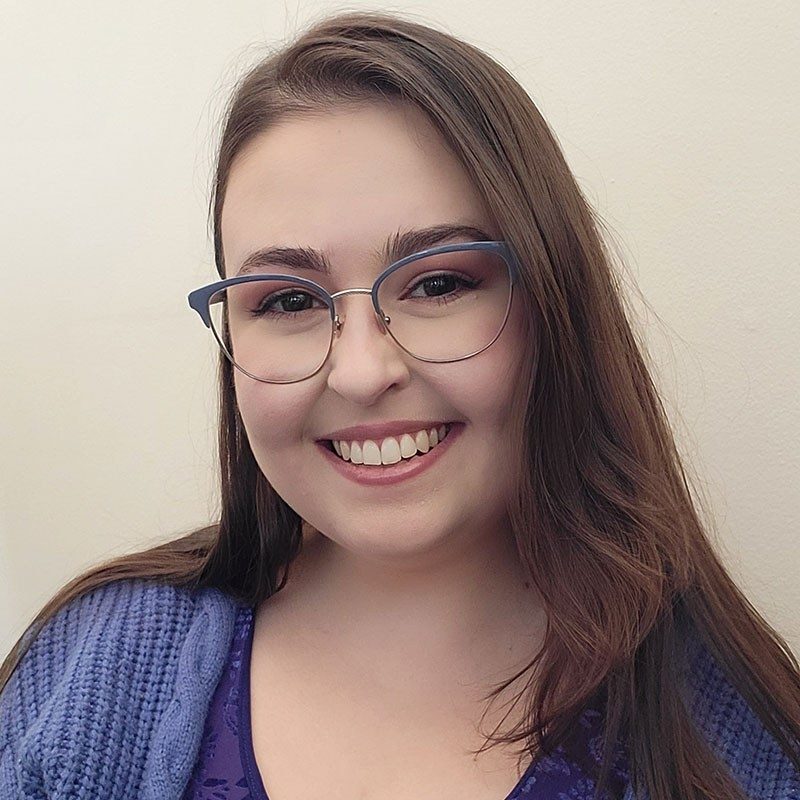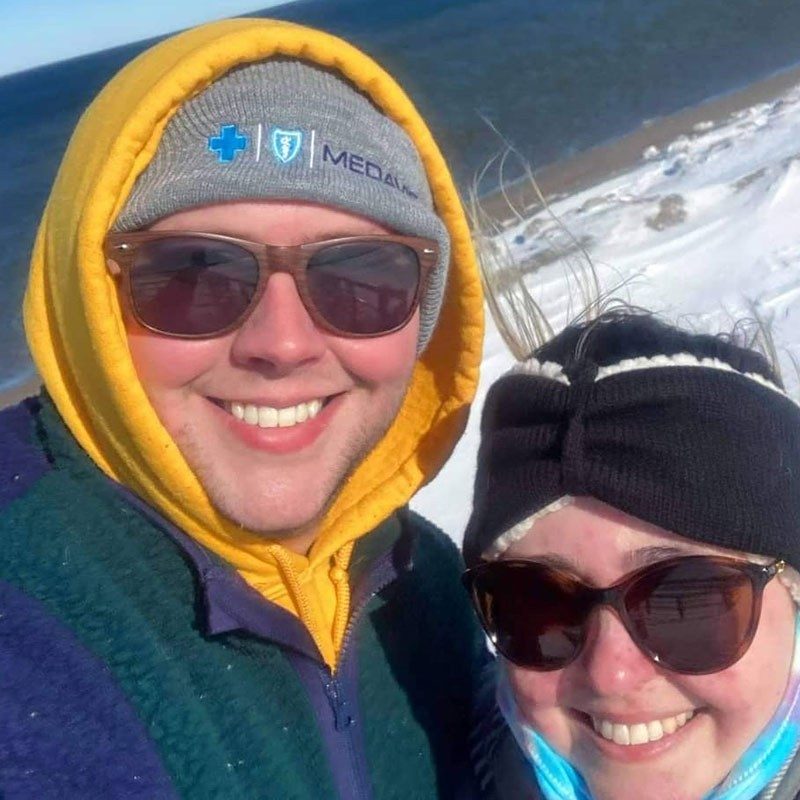- English
- français
Our People. Their Stories - Ashley Gaudet
Every day, Medavie's team of more than 8,000 professionals work to improve the wellbeing of Canadians. Join us as they share their stories and show how we deliver on our mission and bring our values to life. These are the people who make Medavie what it is today.
Ashley Gaudet
Audit Investigator
Medavie Blue Cross
Editor’s Note: In recognition of International Day of Persons with Disabilities (IDPD), Ashley Gaudet is sharing her story to raise awareness on behalf of persons with disabilities and to promote disability inclusion at work and society at large, ensuring that no one is left behind. Medavie joins her in supporting the leadership and participation of persons with disabilities toward an inclusive, accessible and sustainable world.

Ashley Gaudet is an Audit Investigator with Medavie Blue Cross. In her role, she uses state-of-the-art fraud prevention and detection capabilities to protect the benefit plans we insure and manage.
She is also a member of Medavie’s Diversity, Equity and Inclusion (DEI) Council, an advisory group comprised of senior leaders and employees who are committed to ensuring that Medavie is constantly progressing towards a more inclusive environment.
“All I ever wanted to do with my life was make a difference. I didn’t know how I wanted to do it, but as soon as the opportunity arose, I knew the DEI council would be a great way to use my voice to help people who may not have a voice of their own.”
Ashley has a genetic condition called Primary Ciliary Dyskinesia (PCD). It’s a rare, progressive disorder that affects her body’s motile cilia. These cells are responsible for preventing and fighting respiratory infections. As a result, she can experience two to eight “dangerous and life-threatening” lung infections in a typical year. She also has Bronchiectasis, a chronic condition that damages and widens the lung’s airways.
Ashley describes PCD as an invisible disability that becomes quickly visible.
“I have a bad chronic cough, and I rarely go more than a couple minutes without coughing, so if you spend a few minutes with me, you’ll definitely notice I’m not as healthy as I look.”

When asked about her prognosis, Ashley says every person experiences PCD differently. PCD has a broad spectrum of symptoms, and because it’s a rare disease, there is limited data on life expectancy and the rate of lung transplants.
“Disease progression can also happen rapidly or very slowly. I may need daily oxygen at some point, and it’s possible that I might require a lung transplant. All I know is I’m not likely to live as long as the average person.”
Her condition affects all aspects of Ashley’s life.
“I don’t have a lot of energy most days, so I have to make sure I sleep a lot. I have to make sure I set aside time for my chest clearance therapies and medications.”
In addition, she must keep an inventory of all her medications and ensure she takes her vitals every time she feels “a little off.”
Ashley was born with PCD and has had symptoms all her life. Even though her parents pushed doctors for a diagnosis from infancy, it wasn't until she was almost 20 that she received an official diagnosis.
Ashley is grateful for the support she has received from her family and from her employer, where she’s worked for the past six-plus years.
“I’ve been treated differently by employers in the past, who thought that because I have a chronic illness, I could handle less responsibility. That has never been the case at Medavie.”

Ashley also appreciates Medavie’s flexible work options.
“Having the ability to work from home has made it much easier to continue working when I’m having a flare-up. I set alarms to remind myself to do treatments and take medications and working from home means I never have to stress about forgetting medications at home—I’m already there.”
Ashley says there is still much that can be done in the workplace and society to improve accessibility and remove barriers.
“Start with making entrances to buildings accessible. A braille sign isn’t helpful if it’s behind furniture or difficult to find. An accessible door button isn’t really accessible if it’s too far away from the door. A public washroom is not accessible if the only way to get to it is down a flight of stairs.”
Among the barriers she faces are access to expensive medication and medical equipment.
“There are no approved medications for PCD, which means that the only options are treating symptoms and preventing damage.”
When asked what individuals can do to support disability inclusion, Ashley says:
“Don’t automatically treat disabled people as if they need help. If we need help, we will ask for it. Treat disabled people the same as you would an able-bodied person. Try to use identity-first language, rather than person-first language.”

Her advice to anyone who has a disability?
“Find a community who gets you. Look online on sites like Facebook and there is likely a support group that fits your needs.”
Learn more about the diagnosis and treatment of PCD and how you can lend your support by volunteering, advocating or making a donation to the PCD Foundation. You can also bring smiles to the faces of hospitalized PCD patients or those who have recently returned from hospital by sending care packages through PCD Smiles.
Learn more about Medavie’s DEI commitment to foster a respectful culture where our teams, patients, customers, partners and communities are valued for who they are and what they contribute.
Filed under Employee Spotlight Medavie



